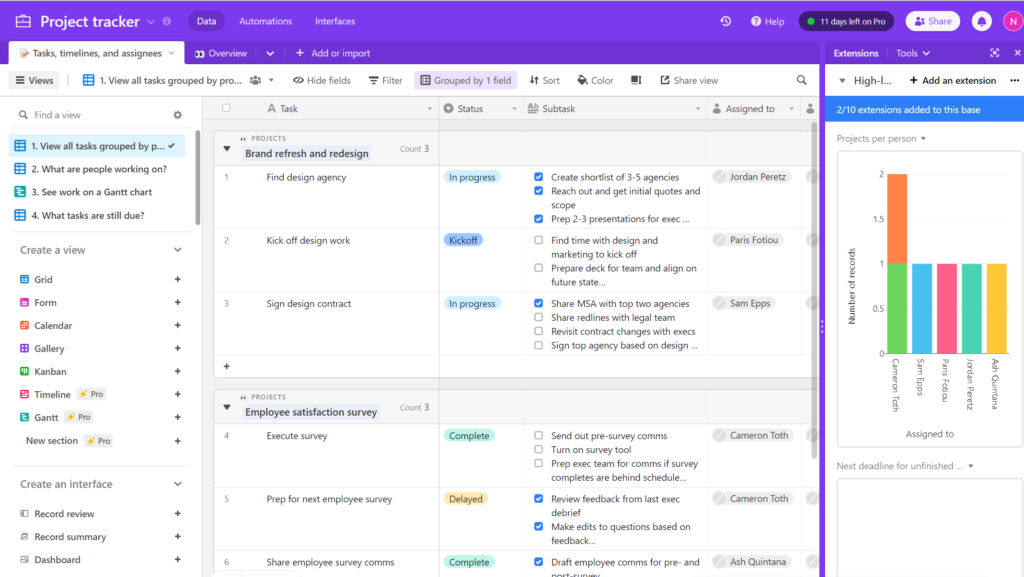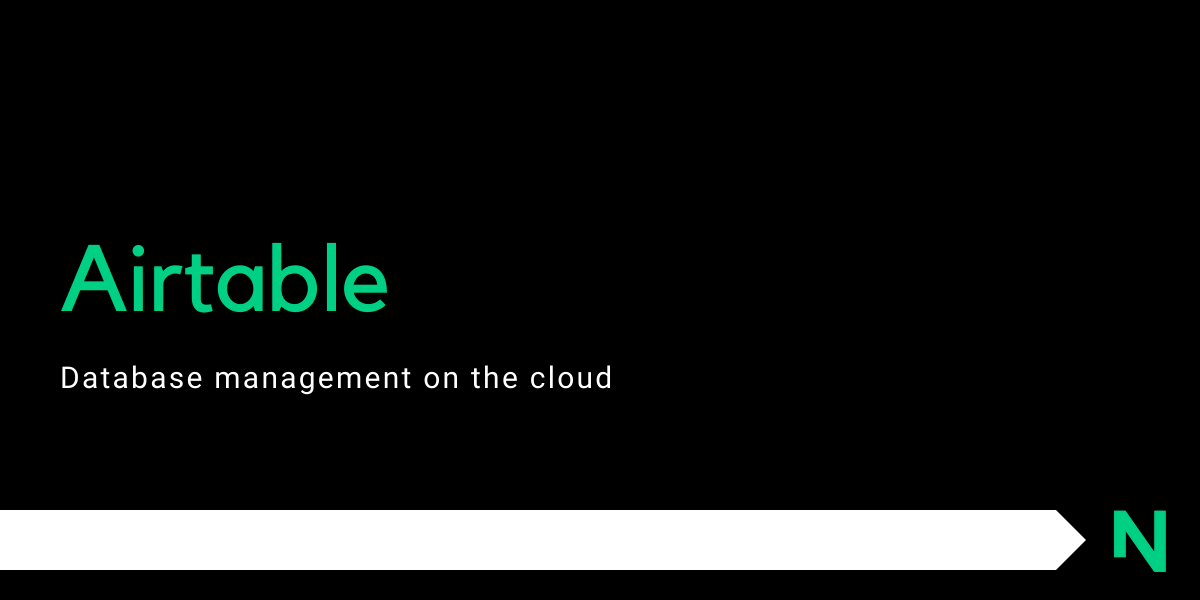Airtable is a powerful and flexible platform that has quickly become a popular choice for individuals and teams looking for a way to manage their data and projects. In this article, we will take an in-depth look at Airtable and explore its features, capabilities, and use cases.
We will also discuss how it compares to other similar tools. Whether you are new to Airtable or have been using it for a while, we hope you will find this article helpful and informative.
What is Airtable?

Airtable is a game-changing collaboration and organization platform that is transforming the way people work.
With its unique blend of a database, spreadsheet, and document editor features, Airtable makes it easy to create and manage data in a flexible and customizable way.
Whether you’re a project manager looking to keep track of your team’s progress, a marketing team looking to organize your assets, or a small business owner looking to streamline your operations, Airtable has you covered.
With its user-friendly interface and powerful integrations, you can get up and running quickly and easily, and start collaborating and organizing like never before.
Features of Airtable
- Flexible and customizable data organization: Airtable allows users to create and organize their data in a way that makes sense for their specific needs, using a variety of field types and views (e.g. grids, calendars, galleries) to display and manipulate the data.
- Collaboration and sharing: Airtable makes it easy for teams to collaborate and share information in real-time, with features such as commenting, tagging, and @mentions to facilitate communication and coordination.
- Integration with other tools: Airtable integrates with a wide range of other tools and platforms, including popular productivity and project management apps such as Trello, Slack, and Google Drive. This allows users to seamlessly incorporate their Airtable data into their existing workflows.
- Robust API and automation capabilities: Airtable offers a powerful API and support for integrations with popular automation tools such as Zapier and IFTTT, enabling users to automate repetitive tasks and create custom workflows.
- Security and reliability: Airtable is built on top of a secure, scalable infrastructure and offers a range of security controls and features to protect user data, including encryption, access controls, and backup and recovery options.
Airtable pricing
Airtable has four pricing plans:
- Free: Designed for individuals or small teams just starting out with Airtable, and is offered at no cost. It includes unlimited bases, up to 5 creators or editors, unlimited commenter and read-only users, and a limited number of records and attachments per base.
- Plus plan: Priced at $10 per seat per month when billed annually, or $12 when billed monthly. Intended for teams looking to create connected apps to manage their workflows. It includes additional features such as custom branded forms and automatic table syncing.
- Pro plan: Costs $20 per seat per month when billed annually, or $24 when billed monthly. Designed for teams and departments who need to build connected apps to power their most important processes. It includes features such as Gantt and Timeline Views and granular interface permissions.
- Enterprise plan: Geared towards departments and organizations who need a scalable and customizable connected apps platform, and is priced through custom quotes. It includes advanced features such as SAML-based single sign-on and an enterprise-wide admin panel.
Airtable reviews
- Airtable is rated 4.6 out of 5 stars by 2000+ people on G2. Read reviews here.
- It also has a 4.7 of 5 rating on Trustradius. You can read the reviews here.
